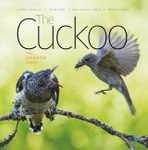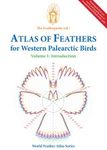By: Bridget JM Stutchbury(Author), Eugene S Morton(Author)
199 pages, b/w illustrations, tables
![Behavioral Ecology of Tropical Birds Behavioral Ecology of Tropical Birds]()
Click to have a closer look
About this book
Contents
Customer reviews
Biography
Related titles
About this book
Behavioral Ecology of Tropical Birds, second edition provides the most updated and comprehensive review on the evolution of behaviour in tropical land birds. The book reviews gaps in our knowledge that were identified twenty years ago when the first edition was published, highlights recent discoveries that have filled those gaps and identifies new areas in urgent need of study. It covers key topics, including the timing of breeding, movement ecology, life-history traits, slow vs. fast pace of life, mating systems, mate choice, territoriality, communication, biotic interactions, and conservation. Written by international experts on the behaviour of tropical birds, the book explores why the tropics are a unique natural laboratory to study the evolution of bird behaviour and why temperate zone species are so different. A recent surge of studies on tropical birds has helped to reduce the temperate zone bias that arose because most avian model species in behavioural ecology were adapted to northern temperate climates. This is an important resource for researchers, ecologists and conservationists who want to understand the rich and complex evolutionary history of avian behaviour.
Contents
1. Why are tropical birds interesting?
2. Breeding seasons
3. Life history traits
4. Pace of life
5. Mating systems and mate choice
6. Territoriality
7. Migration and movement behavior
8. Communication
9. Biotic Interactions
10. Conservation and behavior
11. Conclusion: Is the temperate zone bias still a problem?
Customer Reviews
Biography
Bridget Stutchbury is an Associate Professor of Biology at York University in Toronto, Canada. She is an internationally recognized expert on songbird behaviour, ecology, and conservation; specifically, she has conducted research on migrant songbird ecology in Mexico, and mating systems of resident passerines in Panama. In addition, she has published numerous papers on the behavioural ecology of temperate bird zones. Dr Stutchbury is the recipient of numerous research awards, most recently the York University President’s Research Excellence Award and Margaret Morse Nice Award for Lifetime Achievement from the Wilson Ornithological Society.
Eugene Morton is a Senior Scientist at the Conservation and Research Center of the National Zoological Park, Smithsonian Institution. He received his PhD in Evolutionary Biology from Yale University. He has written several books on avian communication. He has studied tropical birds since 1964, chiefly in Panama, but also in Mexico, Cuba, and Venezuela. His tropical research has focused on frugivory, vocal communication and the winter ecology of migrants. Dr Morton has worked extensively on both migratory birds and resident tropical birds, giving them a unique perspective on the evolution of bird behaviour. Dr Morton was awarded the William Brewster Medal for the most significant body of ornithological research in the past decade from the American Ornithologists' Union. He has served on the boards of numerous associations, most recently as the Vice President then President of the Association of Field Ornithologists.
By: Bridget JM Stutchbury(Author), Eugene S Morton(Author)
199 pages, b/w illustrations, tables
This original and valuable book will help to broaden the understanding of avian ecology throughout the world. D. Flaspohler, Michigan Technical University, in CHOICE (January 2002) "This is a stimulating book and a rich source of research ideas written at a level suitable for undergraduates..." -Jeremy Lindsell in IBIS (2001) "The principal strength of this book is the authors' breadth of experience, which provides credibility to their claims. ...I recommend Behavioral Ecology of Tropical Birds to budding behavioral ecologists who are on the prowl for research topics that may alter the directions of the field, and to ecologists in the temperate zone who wonder why their colleagues go to the bother and expense of mounting behavioral research projects in the tropics." -Tom A. Langen, Clarkson University, in ECOLOGY (November 2001)


































